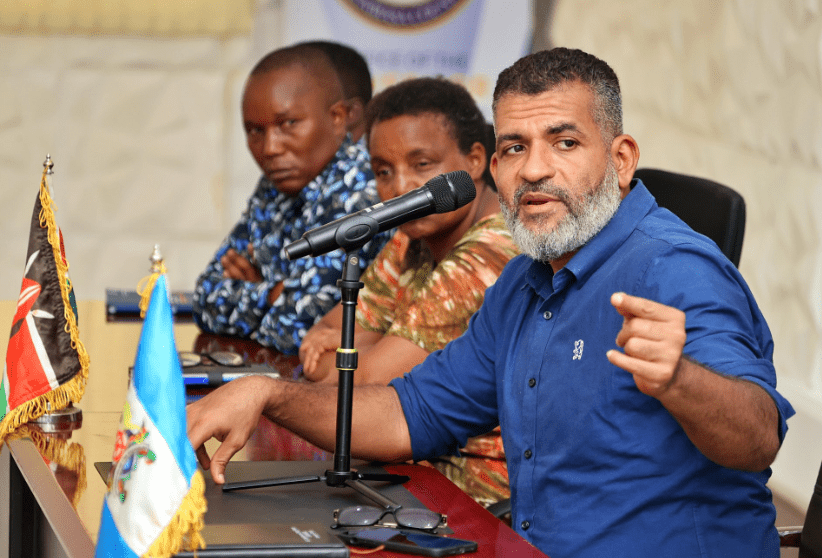Uniformity in law only way to resolve muguka dispute
By Suba Churchill, June 7, 2024The ferocious stand-off between four Coast counties and two Mt Kenya ones has escalated despite the robust legal framework in place to resolve any misunderstanding between the national government and counties.
Khat is grown in the Horn of Africa and its leaves are chewed for its stimulating effects. Two variants – miraa and muguka – are grown in Meru and Embu counties respectively, and are a major source of revenue not only for farmers but also the county governments.
By dint of their proximity to the Indian Ocean, where large-scale merchant shipping and related maritime operations are the order of the day, the six coastal counties of Kwale, Mombasa, Kilifi, Taita Taveta, Lamu and Tana River have borne the brunt of drug and substance abuse.
In March 2023, the UN Office on Drugs and Crime reported that for decades, heroin produced from poppy grown in Afghanistan had been trafficked from ports along the Makran coast of Iran and Pakistan on large ocean-faring dhows or small vessels to port cities across the Indian Ocean coast.
Known as the Southern Route, this maritime flows from which transnational organised crime groups generate considerable revenue.
It’s, therefore, understandable when leaders from the coast region appear united for once on the harm that the two variants of khat, comparably milder as they may be, are causing to their populations, exacerbating the damage already caused by hard drugs.
But the county governments seem to be getting it wrong on how to deal with the problem. While the Mombasa governor issued an executive order banning the sale and use of miraa and muguka, Kwale has passed a law imposing objectionably high taxes that are as good as a ban altogether.
Meanwhile, Kilifi and Taita Taveta have followed in the footsteps of Mombasa, also banning the trade and use of the stimulants, though the national government has affirmed it allocated funds in the 2024/25 budget proposals to improving yields and, by extension, income for growers.
Only Lamu seems to be more realistic, directing that miraa and muguka be sold strictly in designated areas, away from schools and places of worship.
In so doing, the county seems to have been properly advised that pursuant to Article 191(1) of the Constitution, national legislation prevails over county laws whenever the two are in conflict, particularly when the national legislation applies uniformly throughout Kenya.
Other than for the reason that existing laws on the production, trade and use of miraa and muguka apply nationally, the Constitution further provides that national legislation also prevails when a law is aimed at preventing unreasonable action by a county that is prejudicial to the economic, health or security interests of Kenya or another county, or impedes the implementation of national economic policy.
The only circumstance when a county law prevails over national legislation is when neither of the conditions contemplated above exist.
From the foregoing, it’s clear that the sale and use of miraa and muguka cannot be regulated effectively by legislation enacted by any county government.
To deal effectively with miraa and muguka, including how to tackle abuse of alcohol and other restricted consumables, requires uniformity across the nation.
National legislation provides uniformity by establishing national policies through which norms and standards, like the ones Lamu has imposed, are set.
This also ensures the maintenance of national security that was adversely affected by the unilateral action taken by Mombasa and its neighbouring counties.
— The writer is the Executive Director of the Kenya National Civil Society Centre
More Articles

